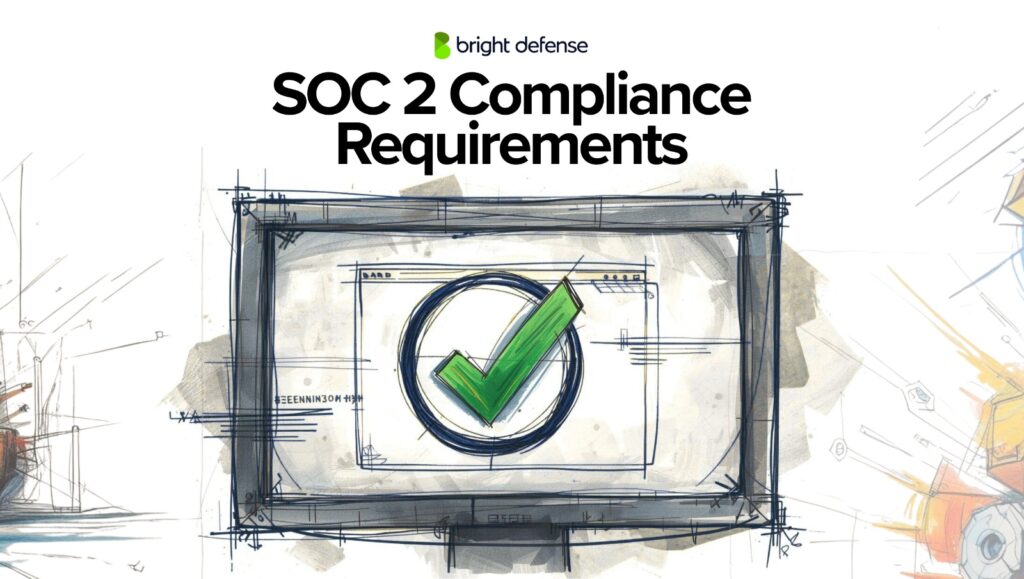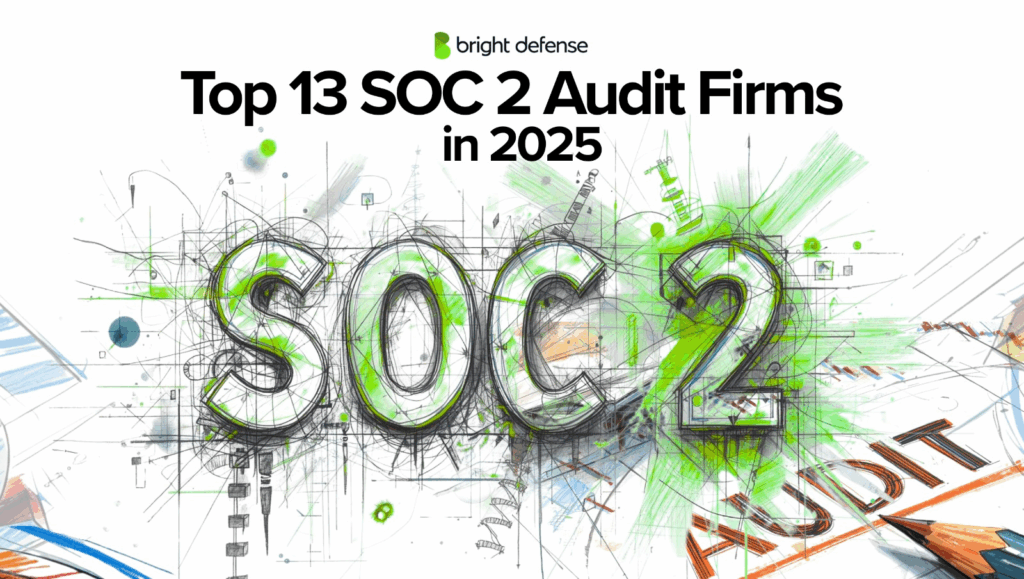
CMMC 2.0 Final Rule: Key Updates for Defense Contractors
CMMC 2.0 is now official. The final rule was published on October 15, 2024, and defense contractors must start preparing for new cybersecurity requirements. The updated framework reduces assessment levels from five to three, aligning them with existing NIST standards.
The goal is to simplify compliance, especially for small and mid-sized businesses, while still protecting Controlled Unclassified Information (CUI) and Federal Contract Information (FCI).
The rule took effect on December 16, 2024, with a phased rollout starting in fiscal year 2025. Full implementation is expected by 2028.
Contractors should review their current cybersecurity practices and prepare for the upcoming requirements to maintain eligibility for DoD contracts.
What is CMMC 2.0?
CMMC 2.0 is a cybersecurity program from the Department of Defense that sets rules for how defense contractors protect sensitive data like Controlled Unclassified Information (CUI) and Federal Contract Information (FCI). It replaces the older five level system with three clearer levels: Foundational, Advanced, and Expert, based on existing NIST standards.
Depending on the type of work and risk involved, companies may need to do self assessments, go through third party audits, or have government led reviews.
The new rules start rolling out in DoD contracts as early as late 2025. Meeting these standards is essential for staying eligible to work with the DoD.
The new model aligns with Federal Acquisition Regulation (FAR) part 52.204-21 and National Institute of Standards and Technology (NIST) Special Publications 800-171 and 800-172. These outline the requirements for protecting CUI.
CMMC 2.0 also introduces third-party assessments for contractors at higher levels. Finally, it enhances enforcement measures to ensure compliance across the defense industrial base.
Key Changes Under CMMC 2.0
CMMC 2.0 brings major updates aimed at making cybersecurity compliance more straightforward and less burdensome for defense contractors. After listening to industry feedback on CMMC 1.0, the Department of Defense revised the framework to focus on real-world threats, practical requirements, and alignment with established NIST standards.
Here’s a clear breakdown of what’s changed and what contractors need to know moving forward:
1. Fewer Compliance Levels
CMMC 2.0 simplifies the framework by cutting the five-tier model down to three levels:
- Level 1 – Foundational: Covers basic cyber hygiene with 17 controls from FAR 52.204-21. Designed to protect Federal Contract Information (FCI).
- Level 2 – Advanced: Follows all 110 controls in NIST SP 800-171 for protecting Controlled Unclassified Information (CUI).
- Level 3 – Expert: Applies to high-risk contracts and uses selected controls from NIST SP 800-172 for added protection of national security systems.
2. Tighter Alignment with NIST Standards
CMMC 2.0 fully aligns with NIST SP 800-171 and 800-172, eliminating the extra controls and maturity processes that were unique to CMMC 1.0.
This makes it easier for contractors already familiar with NIST standards to meet the new requirements.
3. More Flexible Assessment Rules
CMMC 2.0 adjusts how and when companies need to prove compliance:
- Level 1: Annual self-assessments with internal reporting.
- Level 2: Priority contracts require a third-party assessment every three years. Non-priority contracts can use self-assessments, signed off by a senior official.
- Level 3: Requires government-led assessments with DoD oversight.
4. Gradual Rollout Timeline
The new requirements won’t be enforced immediately. They’ll start showing up in select DoD contracts by late 2025, with full rollout expected by 2028.
This gives contractors more time to prepare—unlike the rushed approach in CMMC 1.0.
5. Introduction of POA&Ms and Waivers
- POA&Ms (Plan of Action and Milestones): Contractors can temporarily defer some non-critical controls at Level 2, as long as they commit to fixing them on a timeline.
- Waivers: May be granted in limited cases for urgent operational needs, but only with DoD approval.
6. No More Process Maturity Requirements
CMMC 1.0 asked companies to prove the maturity of their internal processes.
CMMC 2.0 removes that requirement and focuses purely on whether the necessary cybersecurity controls are in place.
7. Lower Compliance Costs for Small Businesses
By limiting third-party assessments to higher-risk contracts and allowing self-assessments elsewhere, CMMC 2.0 reduces the financial and administrative burden—especially for small contractors.
8. Clearer Guidance on Protecting CUI and FCI
The update clarifies how contractors should protect both CUI (like technical specs or mission plans) and FCI (non-public contract info), aligning expectations with existing DFARS rules like 252.204-7012.
9. Interim Rule Status
Although published in December 2023, the rule is still being finalized based on public input.
Contractors aren’t required to comply until CMMC clauses appear in their contracts—expected to begin in late 2025.
Why It All Matters
CMMC 2.0 aims to strengthen national security without overwhelming contractors. By focusing on NIST standards, offering assessment flexibility, and giving companies time to adapt, the DoD is trying to strike a better balance between strong security and practical implementation.
Contractors should start reviewing their systems now, mapping current practices to NIST SP 800-171, and closing any gaps before the new requirements go live.
What Percentage of Defense Contractors Will Need to Meet Each CMMC Level?
The DoD anticipates that defense contractors will be required to meet varying levels of cybersecurity protection based on the sensitivity of the information they handle:
- 63% of contractors will need to meet Level 1. This level provides basic cybersecurity protection for Federal Contract Information (FCI) through self-assessments.
- 36% of contractors will need to meet Level 2. This requires enhanced protection of Controlled Unclassified Information (CUI) and may involve either self-assessments or third-party assessments.
- 1% of contractors will need to meet Level 3, the highest level. It protects against Advanced Persistent Threats (APTs) and requires third-party assessments by the Defense Industrial Base Cybersecurity Assessment Center.
These levels ensure contractors apply cybersecurity measures proportional to the risks posed by the information they process, store, or transmit.
CMMC 2.0 Rollout Timeline: Four Phases Over Three Years
The Department of Defense is rolling out CMMC 2.0 in four phases, giving contractors a multi-year runway to meet the new cybersecurity standards. Here’s what the timeline looks like:
- Phase 1: Starts about 60 days after the final acquisition rule is published—expected in early to mid-2025. During this phase, contractors must complete self-assessments for CMMC Levels 1 and 2 to qualify for new DoD contracts.
- Phase 2: Kicks in one year after Phase 1, around early to mid-2026. At this point, third-party assessments become mandatory for Level 2 contracts.
- Phase 3: Begins one year after Phase 2, likely in early to mid-2027. This phase introduces CMMC Level 3 requirements for contracts involving more sensitive or high-risk work.
- Phase 4: Starts one year after Phase 3, around early to mid-2028. This marks full implementation, with CMMC requirements applied across all eligible DoD contracts.
This phased plan is designed to give contractors time to adjust, close security gaps, and get into compliance without being rushed.
The Importance of Third-Party Assessments
One of the biggest shifts in CMMC 2.0 is the increased use of third-party assessments. While many contractors say they’re compliant during self-assessments, only a small percentage feel fully prepared when evaluated by an independent assessor. That gap highlights a key issue: self-assessments often miss critical weaknesses.
For CMMC Level 2, which focuses on protecting Controlled Unclassified Information (CUI), most contractors will need to pass an assessment from a Certified Third-Party Assessment Organization (C3PAO). These reviews are meant to verify that cybersecurity controls are actually in place, not just documented on paper. That said, some lower-risk Level 2 contracts may still allow self-assessments, depending on the DoD’s judgment.
At CMMC Level 3, the bar is even higher. Contractors working on the most sensitive projects will undergo government-led reviews by the Defense Industrial Base Cybersecurity Assessment Center (DIBCAC). These assessments dig deeper to ensure protection against advanced persistent threats.
Bringing in third-party evaluations helps hold contractors accountable and improves the overall strength of the defense supply chain. It’s not just about checking boxes—it’s about making sure sensitive information is genuinely secure.
CMMC 2.0 Rollout and Timeline
The final CMMC rule will become effective 60 days after it is published in the Federal Register on October 15th. While the full rollout of compliance requirements begins in 2025, the DoD offers a three-year phase-in period to allow contractors time to adjust. By 2026, compliance with the updated CMMC standards will be mandatory for all new defense contracts.
Preparing for CMMC 2.0 Compliance
Defense contractors should act now to gauge their current cybersecurity posture and prepare for CMMC 2.0 assessments. The DoD has introduced various resources, including cloud service offerings, to assist businesses in meeting these cybersecurity requirements. Companies should take immediate steps to ensure they’re prepared for upcoming third-party assessments and ready to meet the necessary cybersecurity standards.
Conclusion: The Path Forward for Defense Contractors
CMMC 2.0 represents a significant evolution in how the DoD ensures cybersecurity standards across the defense industrial base. By simplifying the compliance process and introducing stronger enforcement mechanisms, CMMC 2.0 enhances protection while reducing barriers for small and medium-sized businesses.
Are you ready for CMMC 2.0 compliance?
Contact Bright Defense today to assess your compliance and ensure you’re ready for these critical cybersecurity requirements. Stay ahead of the game and secure your contracts with the DoD.
How Bright Defense Can Help with CMMC 2.0 Compliance
Navigating the complexities of CMMC 2.0 compliance can be overwhelming, but Bright Defense is here to help. We offer comprehensive services tailored to your business’s specific needs, whether you’re just starting your cybersecurity journey or working to meet advanced compliance requirements.
Here’s how Bright Defense can assist your organization:
- Continuous Monitoring and Compliance Plans: Our Sentry, Guardian, and Defender continuous compliance plans are designed to transform your organization’s cybersecurity posture and progressively guide you toward achieving full CMMC compliance. We provide ongoing monitoring, proactive assessments, and real-time insights, ensuring your business stays on track toward meeting the necessary CMMC requirements.
- Gap Analysis: We perform thorough assessments to identify areas where your cybersecurity measures fall short of CMMC requirements, providing a roadmap to full compliance.
- Compliance Strategy: Our team will guide you through the necessary steps to meet Level 1, Level 2, or Level 3 compliance, whether through self-assessments or third-party evaluations.
- PreVeil CMMC Enclave Solution: Bright Defense also provides PreVeil’s CMMC-compliant enclave solution, a secure platform specifically designed to help contractors meet the stringent cybersecurity requirements for handling controlled unclassified information (CUI) while simplifying compliance.
No matter your CMMC level or timeline, Bright Defense is your partner in achieving and maintaining compliance, ensuring your business is ready for DoD contracts in 2025 and beyond.
Contact us today to begin your journey toward CMMC 2.0 compliance and ensure your organization is ready for the upcoming requirements!
FAQs
The purpose of CMMC 2.0 is to ensure that defense contractors handling controlled unclassified information (CUI) and federal contract information (FCI) meet cybersecurity standards appropriate to the level of risk posed by cyber threats. The program is designed to protect sensitive information and reduce the risk of breaches in the defense industrial base.
CMMC 2.0 simplifies the original five levels of compliance into three:
Level 1: Basic protection of FCI (self-assessment allowed).
Level 2: General protection of CUI (self-assessment or third-party assessment, depending on the data handled).
Level 3: Enhanced protection of CUI against Advanced Persistent Threats (third-party assessment required).
CMMC 2.0 became effective 60 days after it is published in the Federal Register on October 15, 2024. Full implementation has begun in 2025, with a three-year phase-in period to help contractors meet the new standards.
Plans of Action and Milestones (POAMs) allow businesses to obtain conditional certification for 180 days while working to meet the required NIST standards. This gives contractors time to address specific requirements and achieve full compliance.
No, not all contractors require third-party assessments. Self-assessments are allowed for Level 1 contractors and some Level 2 contractors. However, Level 3 contractors, who handle higher-risk CUI, must undergo third-party assessments.
Defense contractors should assess their current cybersecurity posture, review NIST 800-171 and 800-172 requirements, and prepare for potential third-party assessments. Bright Defense can help assess your readiness and guide you through the CMMC compliance process.
Yes, CMMC 2.0 has been finalized. The Department of Defense (DoD) published the final rule on October 15, 2024, and it became effective on December 16, 2024. However, the DoD will begin including CMMC requirements in contracts only after the related DFARS rule is finalized, expected in early to mid-2025.
The latest version is CMMC 2.0, which was finalized in 2024. It simplifies the model from five levels to three and aligns more closely with cybersecurity standards such as NIST SP 800-171 and SP 800-172.
Yes, if a contractor handles Controlled Unclassified Information (CUI), using cloud services that meet federal security standards is necessary. Microsoft Government Community Cloud (GCC) and GCC High are specifically designed to support compliance with CMMC and other federal cybersecurity requirements.
Get In Touch



